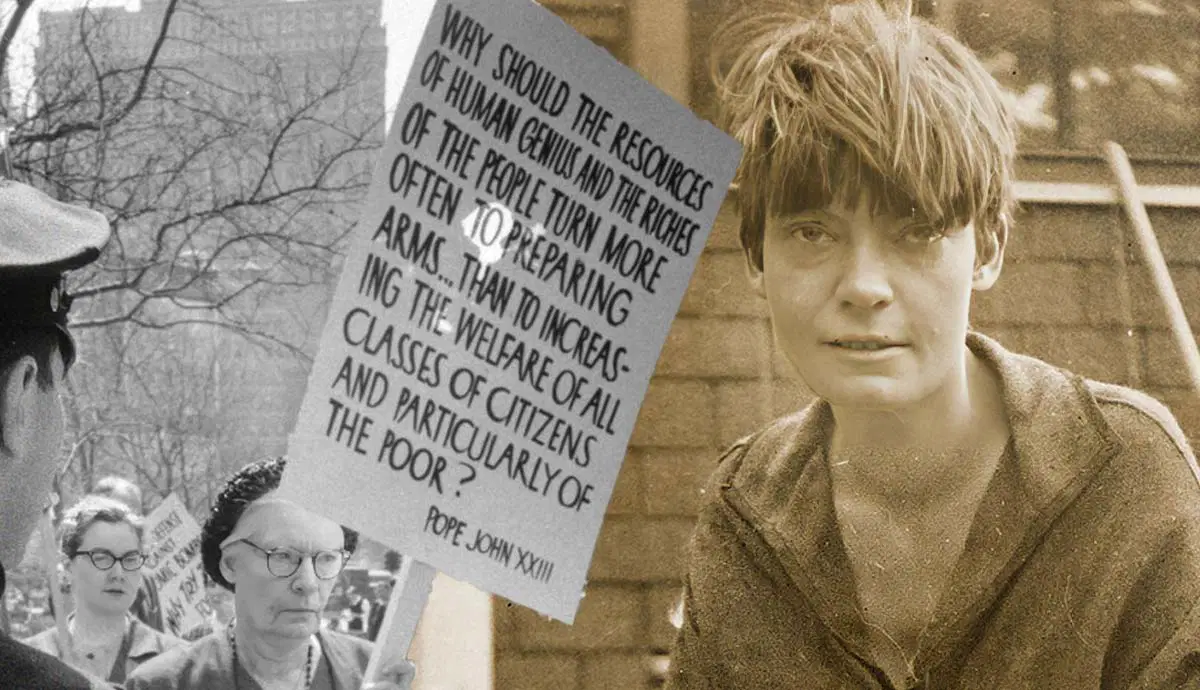Dorothy Day is one of the most prominent Catholic Social Justice figures. Even in death, she has been profoundly influential among Catholic activists.
By Rachel Knight, December 14, 2024
Dorothy Day lived nontraditionally for a Catholic, yet she has a profound influence on many Catholics today. She is even being considered for canonization. She founded the Catholic Worker Movement, including the “hospitality houses” that serve as purposeful communities.
In order to understand Dorothy Day, it is necessary to first have a brief primer on Catholic Social Justice. Catholic Social Teaching is a canonical set of beliefs about social issues. The modern history of Catholic Social Teaching began in 1891 with the publication of Rerum Novarum, written by Pope Leo XIII. This papal encyclical (a letter written by a pope) responded to problems caused by the Industrial Revolution. Common themes of Catholic Social Teaching are caring for the environment, somewhat left-leaning economic views, caring for the poor, and pacifism. Catholic Social Justice is simply Catholic Social Teaching put into practice.
Whereas the clergy are primarily responsible for coming up with the theological reasoning behind the church’s social teachings, laypeople—Catholics who are not priests—are usually the ones who channel these beliefs into action. This may include protesting, supporting certain policies, setting up charities and programs to help the less fortunate, and exemplifying Catholic Social Teaching principles in their everyday lives.


